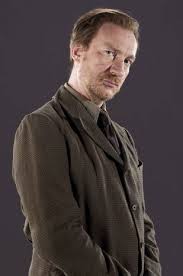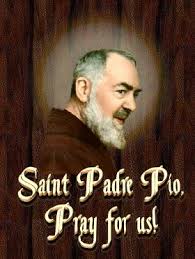I’ll take prolife conversations wherever they occur, and my daughter’s and my recent completion of the Harry Potter books provided many heart-clenching prolife storylines. “Every human life is worth the same, and worth saving,” said Kingsley Shaklebolt (and this family took it to heart!). But the one closest to my heart and family is found in the character of Remus Lupin.
 As a child, he was attacked by a werewolf and afflicted with lycanthropy. His parents worked tirelessly for a cure, although one was never found, and helped him weather the terrible transformations. Extra-worried the way parents of chronically ill children are, they nevertheless allowed him to attend Hogwarts School, where young Remus was petrified that his best friends would discover his condition and reject him. When they figured it out, not only did they not reject him, they learned how to temporarily turn themselves into animals in order to remain near their friend and keep him safe while he was suffering as a wolf. Because of their fierce support, Lupin became tamer during the moon-lit transformations. Living with an illness forced maturity and perception, which explains why he was an excellent teacher, encouraging the underdog and putting himself in harm’s way to protect the innocent. Remus married but suffered great mental anguish when he realized he could pass on lycanthropy to his unborn child:
As a child, he was attacked by a werewolf and afflicted with lycanthropy. His parents worked tirelessly for a cure, although one was never found, and helped him weather the terrible transformations. Extra-worried the way parents of chronically ill children are, they nevertheless allowed him to attend Hogwarts School, where young Remus was petrified that his best friends would discover his condition and reject him. When they figured it out, not only did they not reject him, they learned how to temporarily turn themselves into animals in order to remain near their friend and keep him safe while he was suffering as a wolf. Because of their fierce support, Lupin became tamer during the moon-lit transformations. Living with an illness forced maturity and perception, which explains why he was an excellent teacher, encouraging the underdog and putting himself in harm’s way to protect the innocent. Remus married but suffered great mental anguish when he realized he could pass on lycanthropy to his unborn child:
“How can I forgive myself when I knowingly risked passing on my own condition to an innocent child? It would be better off without a father of whom it should be ashamed.”
Harry passionately denounced him as a coward; Ron was shocked that their beloved professor would consider himself so worthless; and Hermione tearfully whispered, “How could anyone be ashamed of you?” Eventually, Lupin embraced his family with his entire self and asked Harry to be little Teddy’s godfather.
(I was bawling all over the books for several chapters at this point.)
 We too, have a 25% chance of passing on not lycanthropy, but cystic fibrosis to each child we conceive. It has happened twice with seven children. We trust in our Mother Church’s joy in openness to life and understanding of redemptive suffering. We do not see their illness as a curse but their journey to unity with Christ. They bear their own good fruit. Like Mr. and Mrs. Lupin, we also work for a cure both with our money and our prayers, especially asking St. Therese and Padre Pio to pray for them, they who understand pulmonary distress. We also have extra-worries when they leave us, both for their health and their treatment by the Big Bad World. Like Remus’ buddies, we see friends exhibit fierce support and loyalty to our kids that would not be so strong without cystic fibrosis. And we see (mostly in our eldest) the maturity, perception, and recklessness ~ again due to chronic illness. Do we recognize the beauty and value of an afflicted life? Of course. Do we work and pray for a cure? Even more.
We too, have a 25% chance of passing on not lycanthropy, but cystic fibrosis to each child we conceive. It has happened twice with seven children. We trust in our Mother Church’s joy in openness to life and understanding of redemptive suffering. We do not see their illness as a curse but their journey to unity with Christ. They bear their own good fruit. Like Mr. and Mrs. Lupin, we also work for a cure both with our money and our prayers, especially asking St. Therese and Padre Pio to pray for them, they who understand pulmonary distress. We also have extra-worries when they leave us, both for their health and their treatment by the Big Bad World. Like Remus’ buddies, we see friends exhibit fierce support and loyalty to our kids that would not be so strong without cystic fibrosis. And we see (mostly in our eldest) the maturity, perception, and recklessness ~ again due to chronic illness. Do we recognize the beauty and value of an afflicted life? Of course. Do we work and pray for a cure? Even more.
Remus Lupin made his world a better place; my kids are making their world a better place.
Every human life is worth saving. How could anyone be ashamed of them?

